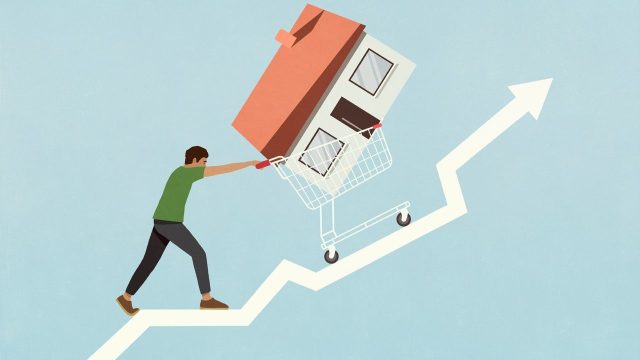
Traditionally, purchasing a home is positioned as a must-do on the checklist for financial success. But does that mean it is actually a good investment, especially when saving up for a down payment means forgoing other investment opportunities?
As of late, investors — particularly younger ones — are increasingly less convinced. Given the recent “record stock market” and the “unaffordable housing market,” younger people “either can’t afford to get on the property ladder or think they can earn a better return elsewhere,” leading many to skip out on homeownership altogether and instead opt to rent and invest in the stock market, said The Wall Street Journal.
So, is skipping home ownership the right move for you? That depends not only on an examination of potential returns but also on your personal situation and the less tangible benefits of homeownership.
Why can a house be a worthwhile investment?
Homes are “generally thought of as investments due to their ability to appreciate over time,” though of course, like any investment, there are no guarantees, said LendingTree. Still, over time, home sale prices have largely proven this to be true: “The average sale price for U.S. homes in the first quarter of 2024 was $513,100 — 10 years previous, in Q1 2014, that figure was just $331,400,” said Bankrate, citing data from the U.S. Census Bureau.
Plus, unlike when you are renting, “your monthly mortgage payments go toward building equity in your home, allowing you to build wealth over time,” as well as giving you the opportunity to borrow against that equity in the future, said LendingTree. Home ownership also offers some tax deductions that are not available to renters.
Additionally, “there are reasons to buy a home that have nothing to do with financial returns,” such as “the predictability of mortgage costs into the future, the freedom to do what you want with the property and having it paid off by retirement,” said the Journal.
Why can a house be a worthwhile investment?
Homes are “generally thought of as investments due to their ability to appreciate over time,” though of course, like any investment, there are no guarantees, said LendingTree. Still, over time, home sale prices have largely proven this to be true: “The average sale price for U.S. homes in the first quarter of 2024 was $513,100 — 10 years previous, in Q1 2014, that figure was just $331,400,” said Bankrate, citing data from the U.S. Census Bureau.
Plus, unlike when you are renting, “your monthly mortgage payments go toward building equity in your home, allowing you to build wealth over time,” as well as giving you the opportunity to borrow against that equity in the future, said LendingTree. Home ownership also offers some tax deductions that are not available to renters.
Additionally, “there are reasons to buy a home that have nothing to do with financial returns,” such as “the predictability of mortgage costs into the future, the freedom to do what you want with the property and having it paid off by retirement,” said the Journal.
What are the drawbacks of investing in a home?
As some investors are determining, a home is not always a good investment. For starters, home ownership often has a high cost to entry, especially since “housing prices have skyrocketed, and mortgage interest rates also remain steep,” said Bankrate. Then there are added expenses like closing costs, home maintenance, insurance and property taxes, all of which can work against the appreciation — which is not even certain to happen.
To really stand a chance at turning a profit, you will generally need to commit to staying put for a while. “If you only live in the home for a short period of time, you may not build enough equity or see enough appreciation to cover transaction costs and walk away with a profit,” said Rocket Mortgage. To just “break even,” it will “typically take five to 10 years,” which restricts the flexibility you would otherwise find with renting.
Should you invest in a house or elsewhere?
Ultimately, whether to sink your money into a house or another investment opportunity depends on a variety of factors, including “your financial health, risk tolerance and short- and long-term goals,” said Bankrate. It is important to be clear-eyed about the fact that while “real estate does tend to increase in value over time,” there is no guarantee of appreciation, and “you may get a better return on your money by investing in bonds or the stock market.”
When it comes to an investment like a home, however, it is about more than just the numbers. Many people “value homeownership for the stability it provides, as well as the freedom to customize the home to their preferences,” said LendingTree.
Less young people are buying homes, opting to rent and invest in the stock market instead





